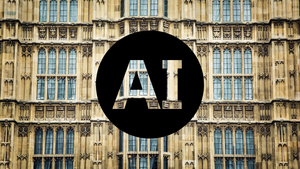A Westminster Hall debate in Parliament yesterday on AI demonstrated that there are plenty of MPs from all parties who share the concerns of the copyright and creative industries - including the music industry - about the UK government’s proposal to create a new copyright exception to benefit AI companies.
The government is still processing the thousands of submissions made to its recent consultation on copyright and AI. However, culture minister Chris Bryant indicated that the government still favours the new exception - which would come with an opt-out for rightsholders - taking the optimistic viewpoint that key concerns expressed by MPs can be addressed by the clever use of technology.
Indeed, Bryant employed quite a lot of optimism when responding to the concerns expressed by his Parliamentary colleagues. “I am determined”, he said, “to get us to a place where [creators] are properly remunerated, where they are able to enforce their rights, and where AI can flourish in this country and be used by the creative industries, and the creative industries are not left by the wayside”.
The government’s proposed new text and data mining copyright exception - or TDM exception for short - would mean that AI companies could use existing content when training generative AI models without getting permission from rightsholders, except where rightsholders have ‘opted-out’ of the exception by formally ‘reserving their rights’. It would basically bring UK law in line with existing European Union law.
Ministers see the AI copyright exception with opt-out as something of a compromise between the demands of the copyright industries and those of AI companies. Although the copyright industries strongly oppose any new exception, while at least some in the AI sector argue that the opt-out means the exception doesn’t provide the flexibility they need.
Many of the creative industries’ strongest allies in Parliament spoke during yesterday’s debate. Labour MP James Frith, who secured the debate, set out the concerns of creators and rightsholders.
“Copyright is not an obstacle but infrastructure, a cornerstone of the British economy”, he declared. It makes possible a £124 billion contribution to UK plc, he added, before declaring, “we should not be weakening it with vague exceptions or opt-out regimes”.
Frith also noted that the big global copyright treaty that is the Berne Convention says that the rights of creators should “not be subject to any formality”, and forcing creators to opt-out of the AI copyright exception is a big old formality. “This violation of international copyright norms will undermine international relations and investment in our country. It will see capital take flight and cause economic damage”.
There is very little faith in the creative community, Frith went on, that the opt-out system proposed by the government will work. “A technical solution does not yet exist to make such opt-outs meaningful”, he said. And in the EU, where the TDM exception with opt out was introduced in the 2019 copyright directive, “no functioning rights reservation has emerged”.
Conservative MP Caroline Dinenage, also Chair of Parliament’s Culture, Media & Sport Select Committee, shared this concern, stating that the government’s “proposed opt-out system” is “utterly unworkable”, adding “this has been proven internationally”. Growth in the UK AI sector, she said, “must not come at the cost of our creators and our world-leading creative industries”.
Musician and SNP MP Pete Wishart was keen to highlight the strength of opposition across the creative and copyright industries to the government’s proposals. “When everybody from Thom Yorke to Rupert Murdoch, from Paul McCartney to the director general of the BBC is upset, there really are difficulties”, he observed.
Alluding to the recent consultation, he said that the government “asked the creative industries what they thought of their proposals, particularly of their preferred opt-out plan”, and “like a finely tuned chorus, the creative sector came back as one and told them it does not like it one bit”.
Bryant acknowledged the concerns about the proposed opt-out system, but employed some of that always useful optimism to conclude that those concerns can be effectively addressed. And in a way that also possibly solves other problems.
That includes the lack of transparency over what content AI companies are including their training datasets. And the fact that, while copyright law in theory protects creators, it doesn’t always in practice. Because while the law allows creators to sue for damages any AI companies that use their content without permission, in reality most creators can’t afford to pursue legal action.
“We have a framework of civil enforcement of copyright in the UK”, the minister said. “It is robust”, he added, and meets the Berne Convention obligations Frith outlined. But it is still “easier for those who have lawyers and cash to use” that framework.
Directly responding to Frith's point that “a technical solution does not yet exist to make opt-outs meaningful”, Bryant admitted his fellow MP is “absolutely right”. However, he then mused, “Why do we not make it happen? I am determined to make it happen. Surely, it cannot be beyond the wit of the clever people who are developing all this technology to develop something”.
“If we were able to deliver that over the next twelve to eighteen months in the UK”, he continued, “then we genuinely would be leading the world and we would be answering the problems of transparency and provenance, and making sure that people were genuinely remunerated. That is one of the things I am determined to do”.
Despite Bryant’s optimism, it seems likely that the creative and copyright industries, and their allies in Parliament, will remain highly critical of the government’s ‘exception with opt-out’ plan.

